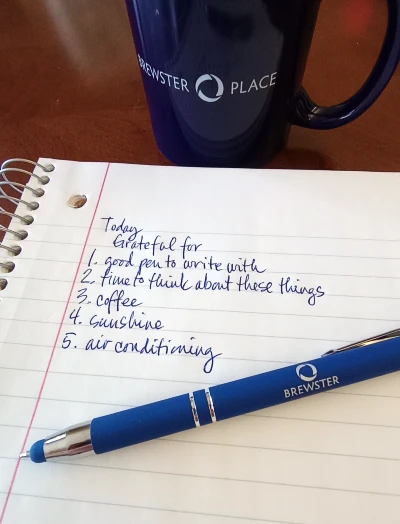
We hear a lot about the practice of gratitude these days. There are books to read and journals to keep that promise to keep a surge of positive emotions. Some may think this is pollyannaish, but there is a great deal of evidence that says the practice of gratitude improves mental and emotional health.
The University of California Berkley recently announced a $3.1 million research study on the power of gratitude.¹ Through their Greater Good Science Center, they study the psychology, sociology and neuroscience of well-being and how we can foster a more thriving, resilient, and compassionate society.


No one would argue the benefits of being grateful; the problem is that we forget to do it. Do you count your blessings? This is a daily exercise, medicine for our souls. It can change our brain neurons to fire in positive automatic patterns.² Gratitude can soothe distress and broaden our thinking patterns.
Take this as a challenge: write down five things you are grateful for every morning. No need to be fancy, but you might think outside of the box (family, health and friends) and pay attention to small thinks like cold water and daffodils.
“Count your blessings. Once you realize how valuable you are and how much you have going for you, the smiles will return, the sun will break out, the music will play, and you will finally be able to move forward the life that God intended for you with grace, strength, courage and confidence.” — Og Mandino³


